 If you have experienced joint pain, you might have been referred to a rheumatologist– the joint doctors. There are doctors for everything so it can be confusing who you will need to see and for what. This article will give you some insight into what rheumatologists do and who they treat.
If you have experienced joint pain, you might have been referred to a rheumatologist– the joint doctors. There are doctors for everything so it can be confusing who you will need to see and for what. This article will give you some insight into what rheumatologists do and who they treat.
What Is A “Joint Doctor?”
A joint doctor, or as they are professionally known, a rheumatologist, is a medical physician that specifically sees patients who are suffering from musculoskeletal disease and autoimmune conditions. Their job is to diagnose and treat rheumatic or inflammatory diseases that involve muscles, bones, and joints.
Rheumatologists see patients of all ages, but there are specialized physicians that have dedicated their career to focus specifically on treating pediatric patients or adults. Depending on your condition or that of a loved one, you may choose to see a rheumatologist that is focused on a particular age group.
What Conditions Do Rheumatologists Treat?
- Autoimmune Diseases – Occurs when your immune system attacks healthy tissues in your body. Autoimmune diseases include lupus, rheumatic arthritis, multiple sclerosis, celiac disease, and more.
- Inflammatory Disorders – These affect your joints, muscles, and bones. Common inflammatory disorders include osteoarthritis, asthma, Crohn’s Disease, etc.
- Complex Inherited Issues – These are dependent on multiple generational factors and include issues like osteoporosis, scleroderma, rheumatic fever, and several others.
- Connective Tissue Ailments – These ailments directly impact your ligaments, tendons, and skin. Examples include tendonitis, tennis elbow, and polymyositis.
What Types Of Patients Does A Rheumatologist See?
As specialists, rheumatologists only see patients when certain issues arise. These issues include:
- Patients That Have Unexplained Pain And/Or Swelling In Their Muscles And Joints -Unfortunately, many people suffer from unexplainable muscle and joint pain that is reoccurring. This can be a sign of untreated rheumatic disease. In these cases, a rheumatologist will look for any additional rheumatic signs or symptoms that indicate a bigger issue. These can include fever, swelling, rashes, chest pain, skin rashes, or fatigue. Once they have finished assessing your symptoms and complete their diagnostic reports, they are able to create an effective treatment plan.
- Patients Who Have Received Unusual Blood Test Results – It can be difficult to detect rheumatic diseases as they sometimes begin as mild pains and slight fevers. Some doctors might recommend that you have bloodwork done to pinpoint the issue. These are not typical blood tests but instead ones designed to look for rheumatic disease and include antinuclear antibodies (ANA), rheumatoid factor (RF), or erythrocyte sedimentation rate (ESR). If any of these come back positive, you will be referred to a rheumatologist for treatment.
- Patients Who Have A History Of Rheumatic Diseases In Their Family – Unfortunately, many diseases stem from specific inherited genes in your family. Autoimmune and rheumatic diseases are no exception. If such conditions exist in your family history, you should reach out to a rheumatologist early on to get ahead of rheumatic or autoimmune diseases that can progress over time. Early prevention will help you avoid permanent damage to your joints.
-
Patients Experiencing Rheumatic Symptoms – Common rheumatic symptoms include muscle weakness or stiffness, inflammation in the lining of your lungs, dermatitis, swollen lymph nodes, dry mouth or eyes, etc. If you are experiencing such symptoms, a rheumatologist can help. If your symptoms improve with treatment but reappear when you stop treating them or they do not improve with treatment, it may be due to an undetected rheumatic disease.
-
Patients Who Have Been Diagnosed with Autoimmune Or Rheumatic Diseases -If you have already been diagnosed with an autoimmune disorder or rheumatic disease, you are likely already seeing or will soon be seeing a rheumatologist. Rheumatologists specialize in treating rheumatic diseases like lupus, tendinitis, arthritis, nerve impingement, scleroderma, gout, osteoarthritis, bursitis, and more. Your primary care physician can refer you to a rheumatologist in your area if you aren’t sure who to see.
- Working With Rheumatic Disease And Autoimmune Disorder Specialists – One of the most important steps you can take when it comes to managing your bone and joint pains is consulting a rheumatologist. You can prevent permanent joint damage by consulting a rheumatologist when your symptoms begin. If you are experiencing bone, joint, or muscle pain or inflammation, contact a rheumatologist. Our team at Tri-State Arthritis & Rheumatology would love to help you create an effective plan to manage your rheumatic symptoms so you can get back to living your life to the fullest.
Contact Us (859-331-3100) For More Information or to Request an Appointment
 About Tristate Arthritis and Rheumatology
About Tristate Arthritis and RheumatologyTristate Arthritis and Rheumatology is the first and largest Rheumatology practice in the Northern Kentucky area. Founded by Dr. Arthur Kunath in 1986, our rheumatology practice now consists of six doctors who are board certified in both Internal Medicine and Rheumatology and a Physician Assistant. Patients see one doctor (except in emergencies), thereby assuring continuity of care and an individualized doctor-patient atmosphere giving the physician the ability to establish personalized and detailed relationships. Our doctors have received numerous awards, including being listed as “Top Doctors” in Cincinnati Magazine, receiving the Patient’s Choice Award, the Most Compassionate Doctor Award, and the American College of Rheumatology’s “My Doc Rocks” award.


